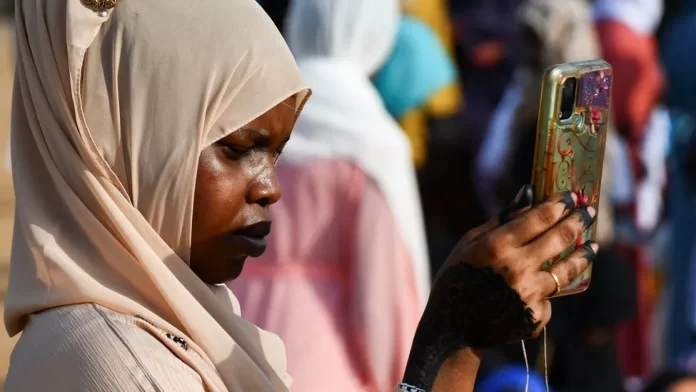Sudan has been plunged into an internet blackout with many blaming the paramilitary group fighting the army in the country’s 10-month civil war.
The Rapid Support Forces (RSF) has denied responsibility.
NetBlocks, a watchdog that monitors internet freedom, said on X, there had been a “new collapse of internet connectivity” in Sudan.
It comes as a Sudanese hacktivist group targeted Uganda for welcoming the RSF leader, Mohamed Hamdan Dagalo.
NetBlocks said it had found a disruption to the services of internet providers Uganda Telecom and MTN, although a BBC reporter in the capital Kampala said he did not notice any problems.
In Sudan, some people have reported being unable to access the internet since Friday but the situation has since got even worse.
State-aligned media have blamed the RSF.
However, according to the Sudan Tribune news site, an RSF official accused the army of issuing direct orders to sever communication in parts of Darfur, Kordofan, Khartoum, and Gezira states, which are largely under the control of the paramilitary group.
NetBlocks said on Wednesday that the one of the major mobile operators in Sudan, Zain, was “largely offline”.
In a statement posted on Facebook, Zain said that it was “working under very difficult, harsh, and dangerous circumstances”.
It added that the “current network outage is due to circumstances beyond its will”.
Two other providers, South African-owned MTN Sudan and state-owned Sudani, were operating at zero on Friday, according to NetBlocks.
The network outage adds another layer of hardship to a nation at war.
In response to the ongoing conflict, the United Nations has appealed for $4.1bn (£3.25bn) to address the urgent humanitarian needs of those in Sudan and people who have been forced to flee their homes.
At least nine million people have been displaced, while some 25 million – half the entire population – need assistance, the UN says.
“Ten months of conflict have robbed the people of Sudan of nearly everything – their safety, their homes and their livelihoods,” said the Under-Secretary-General for Humanitarian Affairs and Emergency Relief Coordinator, Martin Griffiths.
He added that the situation in Sudan needed to be addressed with a “heightened sense of urgency”.
Related





